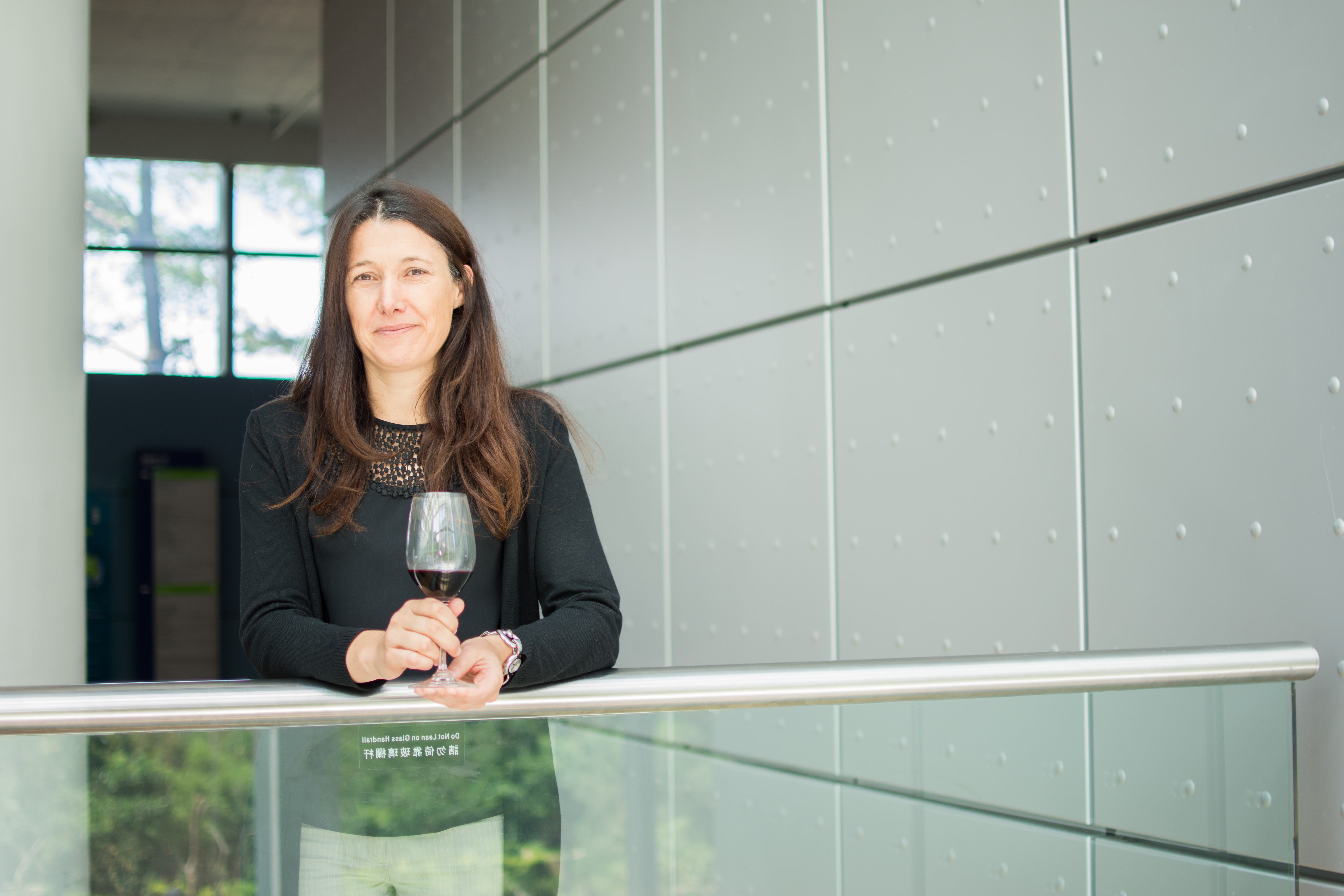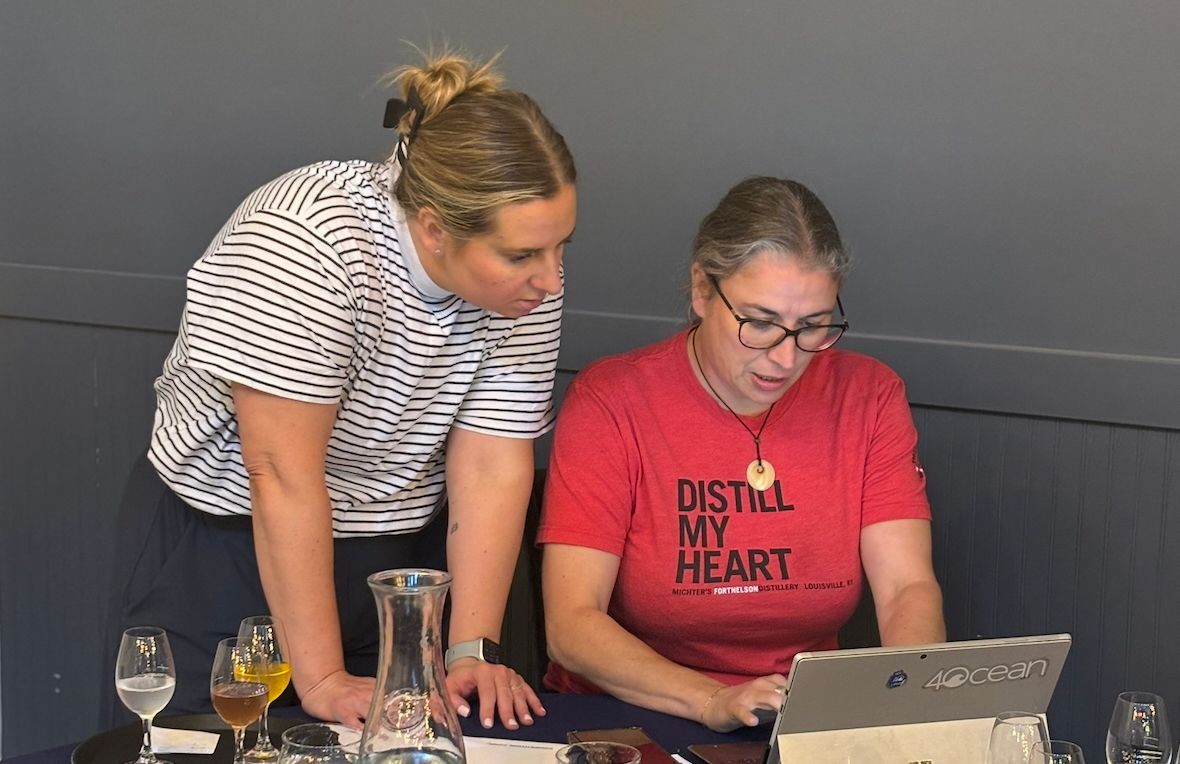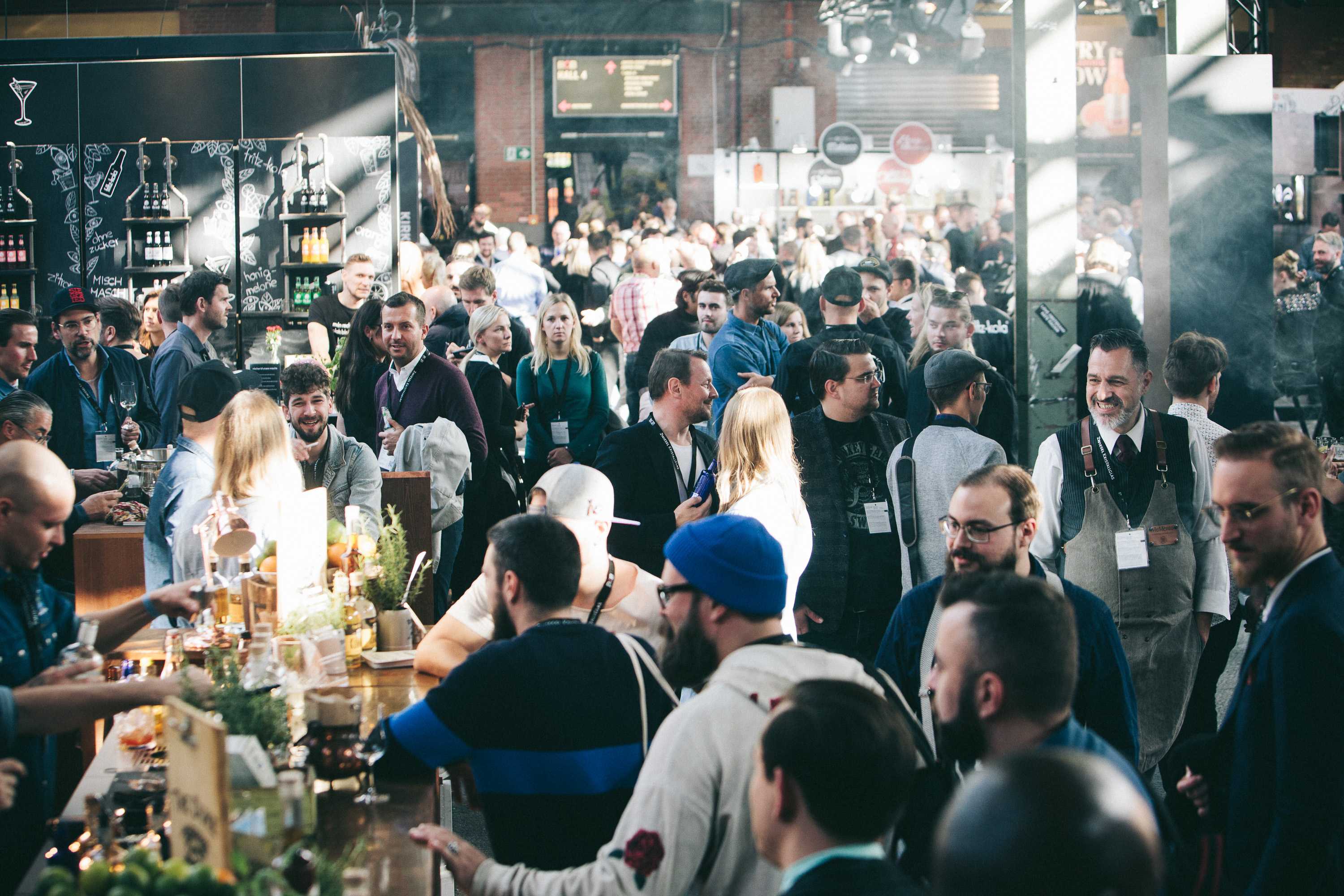In her first year Christelle Guibert has changed how the IWSC judges its wines, the scores it uses to award medals and has moved the judging away from Dunsfold Park and brought it up to central London. She explains to Richard Siddle why she has made those changes and what else we can expect in the coming months.
Why did you want to join the IWSC after so many years at Decanter?
It was very much about wanting to be part of an exciting new project. The IWSC has such a strong heritage and there is so much respect for it around the world. But, to be fair, it was probably running a little behind the other major competitions. So it was an opportunity to come in with a fresh pair of eyes and hopefully give it a new lease of life. But it was also the chance to join the wider Conversion Group that has so many different aspects to its business, including other consumer events, and potentially get involved with these. It’s an exciting time to join the company.
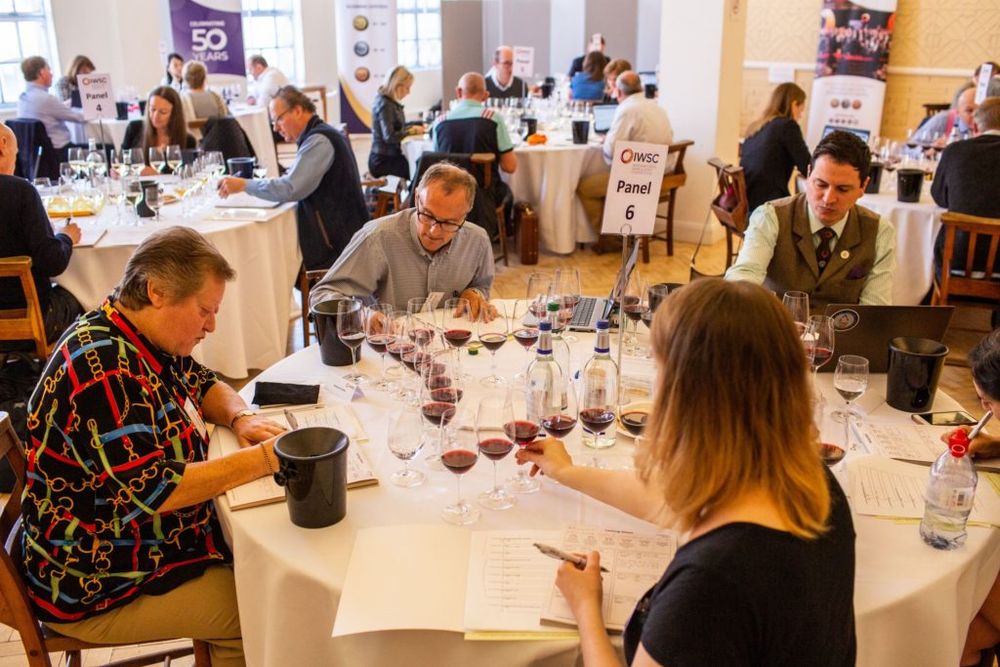
The judging for the IWSC has been moved to central London to make it easier and more relevant for professional buyers to attend
You have made a number of changes to the way the IWSC is organised and the judging. Can you talk us through them?
The first thing to say is that when I joined, the IWSC already had a very rigorous system. I have just looked to tighten it up.
The key change for me was to move the judging to London and away from Dunsfold Park. A wine competition is only as good as its judges and we found it was difficult to always get people to go to Dunsfold. By moving the judging to London it meant we have been able to invite more well respected judges and industry leaders. We have also looked to have more judges with commercial buying experience. People who are buying wines commercially on a daily basis. Fifty per cent of our judges for the 2019 competition were new.
Why is commercial buying experience so important to you?
For a couple of reasons. Buyers taste wines with a commercial angle on a daily basis, so they are on top of their games. They are generally spending time with producers/winemakers, and they work hard to understand their regions or countries. They also closely follow the market to react to their customer trends and to ensure their offering doesn’t become stale. There are several reasons why producers or distributors take part in IWSC and one of them is an opportunity to have each wine judged by people who are the most likely to be buying it in the trade. It’s a win-win situation by exposing the wines to those making buying decisions, and introducing new producers or regions to the buyers.
What other changes have you made?
We give our judges less wines to taste in a day – around 60 to 65 – than the other competitions. We think that is the optimum amount to be judging in a day. It also allows our busy judges to be free by 3.30pm.
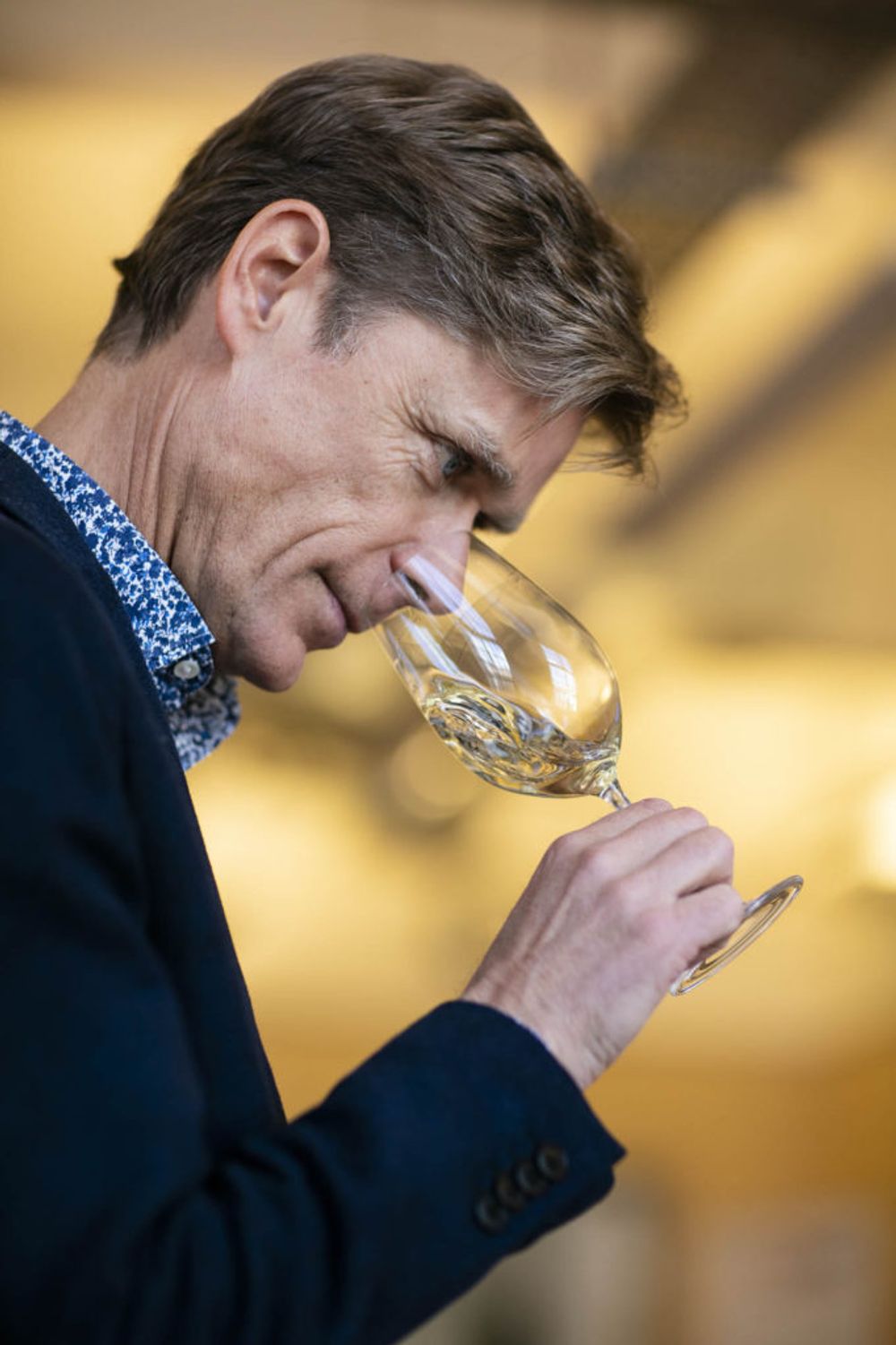
John Hoskins MW has been key in helping to establish the new judging committee
We also set up a core wine judging committee of nine people who are not only highly respected as tasters, but also good working as part of a team and can work well with the rest of the judging room. John Hoskins MW for one has been really important in helping us to establish this. One of the nine committee members is responsible for overseeing the tasting room at any given time. They are also asked to re-taste the Gold medals to ensure there is consistency. But each are only asked to commit to one judging session as we know how busy they are.
The nine committee members are: Alex Hunt MW, Berkmann Wine Cellars; Philip Goodband MW, independent consultant; Dawn Davies MW, Speciality Drinks; Mick O’Connell MW, Findlater & Co in Ireland; Dirceu Vianna Junior MW, independent technical advisor; Michelle Cherutti-Kowal MW, consultant lecturer; Xavier Rousset MS, restaurateur and entrepreneur with four restaurants and one private club; Peter Nixon, British Airways wine consultant.
The IWSC judging is also divided up during the year, starting in April and finishing in September, and we have reduced the price of online entry.
(see below for the full judging process).
You have also changed how you score the wines. What have you done?
We have looked to raise the bar for what it means to win a IWSC medal. We have moved the scoring up so that Silvers now start at 90, rather than 80. Similarly Bronze has moved from 74 up to 85-89, Silver to 90-94 and Golds above that.
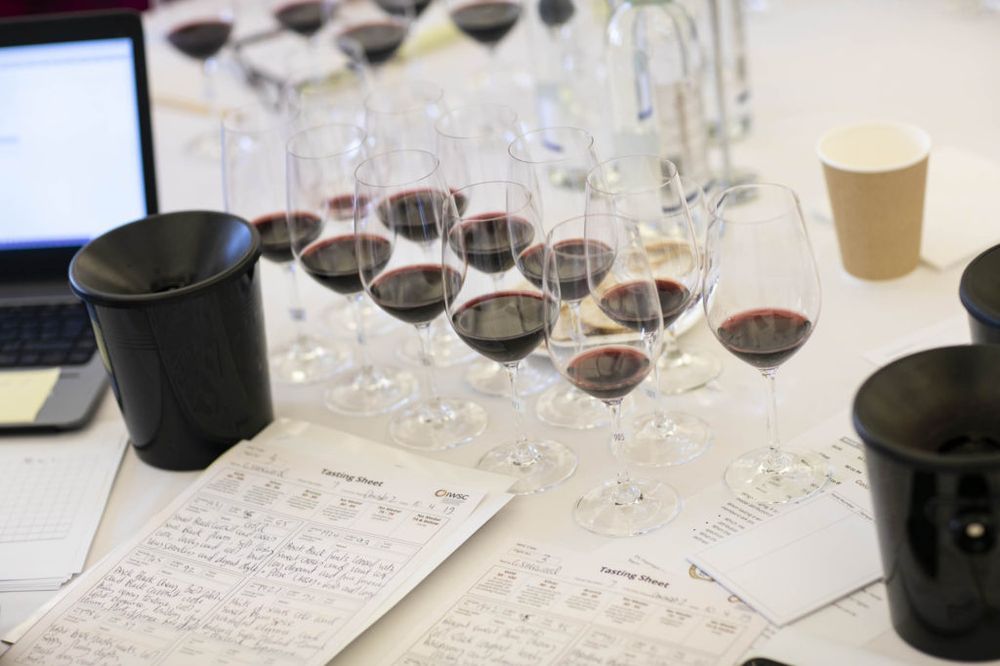
The scoring for the IWSC has all been moved up a notch so that bronze medals now start at 85 and not 74 points
What reaction have you had from producers entering the awards?
The changes have gone down very well. I have also worked hard to go out and talk to a lot of producers, starting with Europe. They have particularly welcomed the move to having their wines judged by people with commercial influence. It gives them a better idea of how their wines will do in the market. It is really moving the IWSC to the next level. They know their wines are being assessed by those who are making buying decisions. It is also an opportunity to remind them that every wine is judged on its own merits. They are not judged alongside, or in comparison to other wines. The wines may be presented in a group of similar wines, but each wine is judged alone, on its own merits.
You are also giving more feedback to producers?
Yes, we ask every judge to give a comment about each wine they taste, which we can then share with producers. It means every wine that wins a medal has a tasting note that people can use to help promote it. It also means wines that don’t win anything will receive professional feedback. Producers are also told which judges have tasted their wine.
It is important for us to give as much information back to producers as we can and demonstrate how we can also act as a service provider, putting producers’ wines in front of the right buyers.
What other changes to judging are you looking to introduce?
The next stage in the process is to allow producers to state which channel of the trade their wines are aimed at and then get judges from those channels to judge these wines. I have learnt from my experience how important it is to put the right wine in front of the right judge. We need to be more targeted in that way.
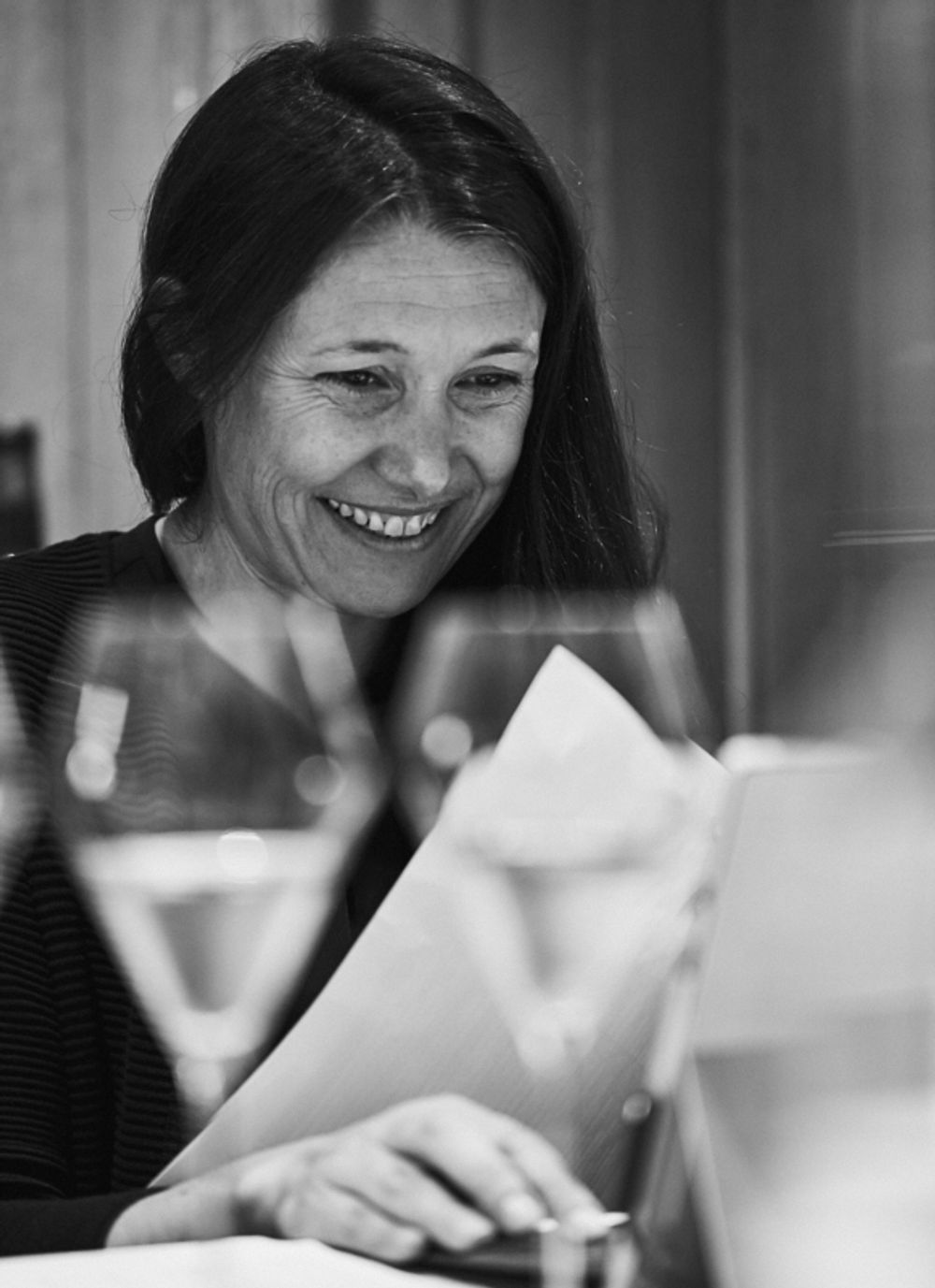
Christelle Guibert has moved quickly stamp her mark on the IWSC
How are you helping producers by promoting the medal winners?
As well as the improved judging process and providing more focused feedback we are also producing a lot more content to help promote the winning producers. That includes profiles and articles about them on our website and social media and showcasing more of the winning wines.
Particularly from wines and regions and countries we don’t always see entered. It is a great opportunity for us to champion these indigenous varieties and lesser known regions. The IWSC can be a great source for discovery. We want to do more to promote these key messages in 2020.
We are also looking to promote our judges and help tell their stories as well.
What can we expect from the IWSC over the next 12 months?
We have already made a lot of changes and we will be looking to review these and continue to build on this strong foundation. We want to make sure we continue to get across our key messages in the coming months and keep looking at new ways we can do that.
We are also looking to see what we can do in terms of our own events, where we can showcase our winning wines. This is where we will be able to bring the IWSC closer together with our new magazine, Club Oenologique, and look to host joint events like walk around tastings and masterclasses. The IWSC has not done this before.
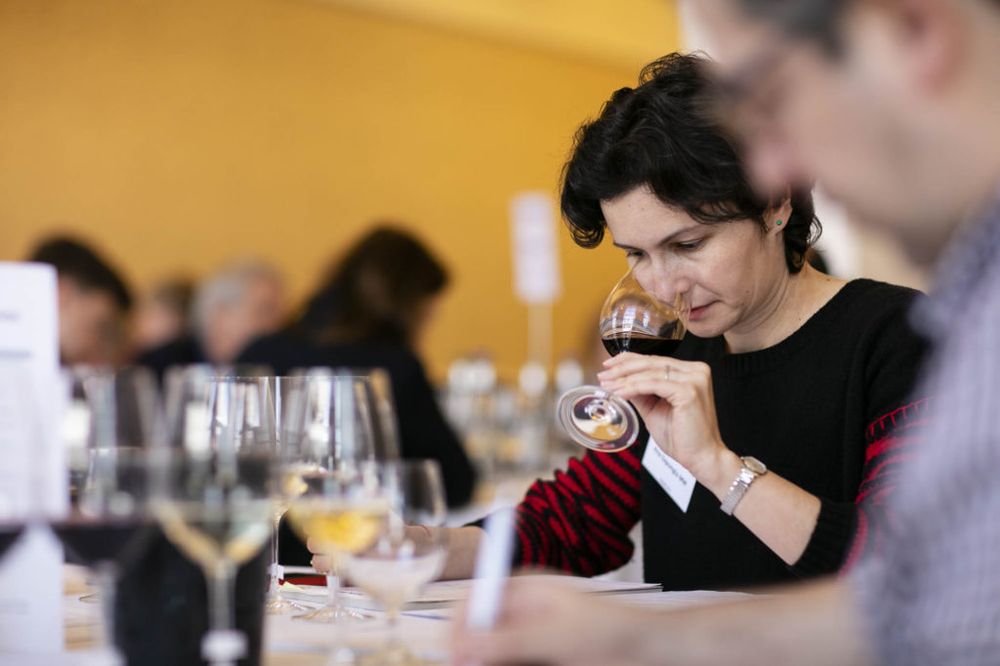
The IWSC has moved the judging to London to give more commercial buyers the chance to take part like Oddbins’ Ana Sapungiu MW
What are the long-term goals of the IWSC?
With 50 years of experience, the IWSC nevertheless continues to evolve. Our goal is to remain engaged, innovative, and forward-thinking as we look to the future. We want to help producers to promote their wines around the world, whether they are seeking new distribution, exposure locally or globally, benchmarking, drive brand awareness or simply receive expert opinion and feedback. We want to help each individual producer to achieve their ambition by putting their wines in front of their targeted audience.
Whether you are a producer or an importer, we would like the IWSC to be a platform to source wine, a platform to have newly launched wines rated by experts, and to also allow discovery of the unknown regions, countries and grape varieties. We are excited to continue to evolve, building on our heritage of delivering impartial, rigorous judging, while providing for the modern needs of our submitters!
The IWSC Judging Process
Step 1: Two ‘warm-up’ wines are served at the start of each tasting session. The purpose of warm up wines is to give judges the chance to warm-up their palate and calibrate their scoring with the rest of the panel before starting the tasting.
Step 2: Panel members taste and score each wine individually. At the end of each flight the provisional scores are shared. After leading the discussion, the Panel Chair confirms the scores awarded. If a consensus is not reached, the Wine Judging Committee (WJC) member will be called to facilitate further discussion and resolution. If two bottles are faulty/out of condition, they undergo official analysis by Campden BRI. The results are shared confidentially with the entrants.
Step 3: The wines achieving 95 and above are re-tasted by the WJC for its final endorsement. If a wine is contested, the WJC will discuss the wine with the relevant Panel Chair and Panel judges.
Christelle Guibert and the USPs of the IWSC
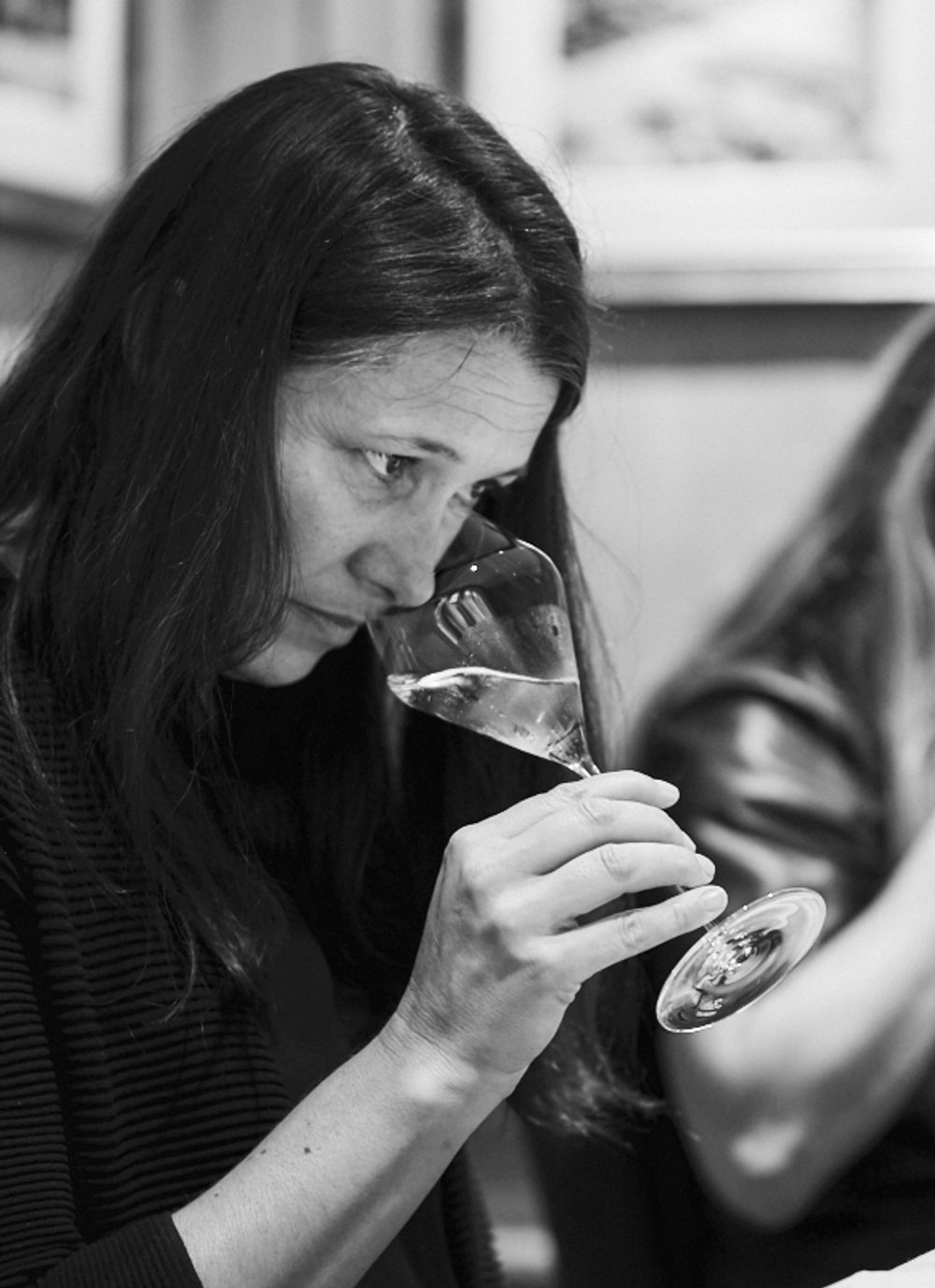
The best way to run a wine competition by Christelle Guibert
- Wines are served in pre-poured, numbered glasses to guarantee anonymities. This avoids the possibility of judges being influenced by the shape or weight or the bottle. From my experience at running blind tastings, European judges have admitted they may in the past have marked a wine down if the bottle was very heavy (anecdotally, across the Atlantic it may be the reverse!).
- Our experts assess around 58 to 65 wines through the course of the day, compared to other competitions where they taste between 85 and 140 wines. We’re very conscious it is vital to avoid palate fatigue and to make sure every single wine is tasted and assessed fairly.
- Judging days are spread across the year. This is key to guaranteeing we have the best qualified experts, to make sure they are fresh at each session, and stop their palates becoming jaded. People are busy and committing to a week or two of tastings is almost impossible. By spreading our tastings across the year it gives us the advantage of getting the best people, as they are only required to judge a couple of days a month. After all, your results are only as good as your judges!
- The wines are not divided into price categories. This is a very hot topic in the industry. but from my experience, and the research I’ve done, knowing the price band can influence the score a wine is given. When judging low-priced wines judges can be resistant to award higher marks. The same goes with the high-price wines from emerging countries. Categorising by price is also frought by the fact that this information is submitted by producers at the time of entry, but they often supply the wrong information as many of them have no clue how much their wines should be sold on the UK market. It means judges are often given the wrong price information anyway.
